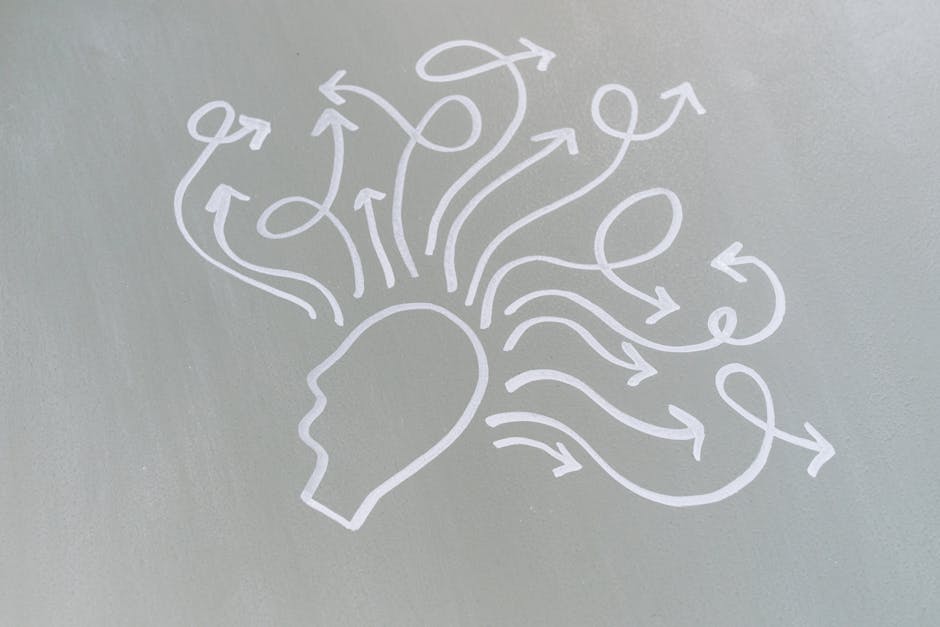Unlocking the Power of Mindset: Meaning and Impact
Mindset, a seemingly simple term, encompasses a complex interplay of beliefs, attitudes, and expectations that profoundly shape our experiences and outcomes. It’s not merely about thinking positively; it’s about the underlying cognitive frameworks we use to interpret the world and guide our actions. Understanding the nuances of mindset is crucial for personal growth, professional success, and overall well-being.
The Two Pillars: Fixed vs. Growth Mindset
Carol S. Dweck’s groundbreaking research popularized the distinction between fixed and growth mindsets. A fixed mindset assumes that our abilities and intelligence are innate and unchangeable. Individuals with a fixed mindset often fear failure, avoid challenges, and perceive effort as a sign of inadequacy. They tend to focus on proving their intelligence rather than expanding it. This approach can lead to stagnation, frustration, and a reluctance to embrace new opportunities. Success is attributed to inherent talent, while setbacks are seen as evidence of limitations.
Conversely, a growth mindset embraces the belief that abilities and intelligence can be developed through dedication and hard work. Individuals with a growth mindset view challenges as opportunities for learning and growth. They embrace effort as a crucial component of success, and they persist in the face of setbacks, viewing them as valuable learning experiences. They focus on the process of learning and improvement rather than solely on the outcome. Success is attributed to effort, learning, and strategic planning, while setbacks are seen as stepping stones towards improvement.
The Impact on Various Life Domains:
The implications of mindset extend far beyond academic performance. Its influence permeates various aspects of our lives:
-
Academic Achievement: Students with a growth mindset tend to achieve higher academic results. They persevere through challenging coursework, actively seek feedback, and view mistakes as opportunities for learning. This contrasts with students who hold a fixed mindset, who may avoid challenging tasks and become discouraged by setbacks.
-
Professional Success: In the workplace, a growth mindset fosters adaptability, innovation, and resilience. Individuals with a growth mindset are more likely to embrace new challenges, seek feedback, and learn from mistakes. They are also better equipped to navigate the complexities of a dynamic work environment. This translates to increased job satisfaction, career advancement, and greater overall success.
-
Relationships: Mindset significantly impacts interpersonal dynamics. A growth mindset promotes empathy, understanding, and the willingness to learn from others. Individuals with a growth mindset approach conflicts constructively, focusing on finding solutions rather than assigning blame. This fosters stronger, more fulfilling relationships.
-
Physical and Mental Health: A growth mindset can positively impact both physical and mental well-being. Individuals with a growth mindset are more likely to adopt healthy habits, persevere through challenges related to fitness and nutrition, and view setbacks as opportunities for improvement. They are also better equipped to manage stress and adversity, promoting mental resilience.
Cultivating a Growth Mindset:
While our innate tendencies might lean towards a fixed or growth mindset, it’s crucial to understand that mindsets are not fixed entities. They can be cultivated and strengthened through conscious effort and consistent practice. Here are some strategies for fostering a growth mindset:
-
Embrace Challenges: Actively seek out opportunities that push you beyond your comfort zone. View challenges as opportunities for growth and learning, rather than threats to your self-worth.
-
Persevere Through Setbacks: View failures as valuable learning experiences, not as indicators of personal limitations. Analyze what went wrong, adjust your approach, and try again.
-
Learn from Criticism: Don’t take criticism personally. Instead, view it as an opportunity for improvement and growth. Seek constructive feedback and use it to refine your skills and abilities.
-
Focus on the Process: Shift your focus from simply achieving results to enjoying the process of learning and improving. Celebrate small victories and acknowledge your progress along the way.
-
Develop Self-Compassion: Be kind to yourself during setbacks. Acknowledge your efforts and remind yourself that everyone makes mistakes. Self-compassion is crucial for maintaining motivation and resilience.
-
Embrace Learning: Cultivate a love of learning and a desire to continuously expand your knowledge and skills. Seek out new experiences, explore different perspectives, and engage in lifelong learning.
-
Surround Yourself with Positive Influences: Spend time with people who encourage your growth and development. Limit exposure to individuals who reinforce negative or fixed mindsets.
The Power of Language:
The language we use reflects and reinforces our mindset. Paying attention to our self-talk and the language we use to describe our abilities and experiences is crucial. Replacing phrases like “I’m not good at this” with “I’m still learning” can make a significant difference in shaping our beliefs and actions. Similarly, focusing on effort and progress (“I worked hard on this”) rather than inherent abilities (“I’m naturally talented”) reinforces a growth mindset.
Neuroplasticity and Mindset:
Research in neuroscience supports the malleability of the brain. Neuroplasticity, the brain’s ability to reorganize itself by forming new neural connections throughout life, demonstrates that our brains are not static entities. Consistent effort in cultivating a growth mindset can literally reshape our neural pathways, reinforcing the belief that abilities are not fixed but can be developed over time. This reinforces the idea that adopting a growth mindset is not simply a matter of positive thinking; it’s a process of actively reshaping our neural architecture. This neurological basis provides a powerful scientific backing to the transformative potential of cultivating a growth mindset.
Mindset and Resilience:
A growth mindset is intrinsically linked to resilience, the ability to bounce back from adversity. Individuals with a growth mindset are better equipped to handle challenges and setbacks because they view them as opportunities for growth rather than insurmountable obstacles. This resilience is crucial for navigating the inevitable difficulties encountered in life, both personally and professionally. The ability to view setbacks as temporary and to learn from mistakes is a key component of building resilience, and a growth mindset provides the framework for this critical life skill.





